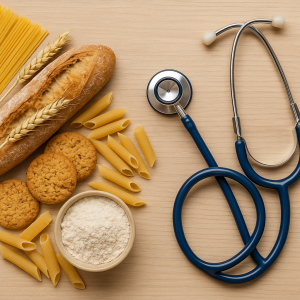 These days, it’s simple to give in to the temptation of sweet treats that offer a brief fix of energy or a reprieve from stress. But what many fail to recognize is that consuming too much sugar can develop into a subtle addiction that harms one’s physical and emotional health. We’ll explore the subtle indicators that your body might be addicted to sugar in this post, illuminating behaviors that may appear harmless at first but may be a symptom of a more serious problem.
These days, it’s simple to give in to the temptation of sweet treats that offer a brief fix of energy or a reprieve from stress. But what many fail to recognize is that consuming too much sugar can develop into a subtle addiction that harms one’s physical and emotional health. We’ll explore the subtle indicators that your body might be addicted to sugar in this post, illuminating behaviors that may appear harmless at first but may be a symptom of a more serious problem.
Constant need to eat or snack
The constant need to eat or snack throughout the day is one of the clearest indicators that your body may be addicted to sugar. Sugar causes blood sugar levels to surge quickly, resulting in an energy spike and subsequent collapse. This rollercoaster impact may cause you to need snacks in an attempt to sustain your energy levels, which can lead to a compulsive cycle of incessant eating.
Think about including more complex carbs and protein in your meals to break free from this pattern. Long-lasting energy from these nutrients helps you feel fuller for longer and lessens your need for sugary snacks.
Article continued below
Excessive consumption of juice
Fruit juices can nevertheless lead to a sugar addiction even if they might appear like a healthier option than sugar-filled sodas. Fruit juices often contain high amounts of added sugars, and the absence of fiber, present in whole fruits, allows for a rapid absorption of sugar into the bloodstream.
To curb your sugar intake, opt for whole fruits instead of juices. Whole fruits have more fiber than other fruits, which slows down the absorption of sugar and releases energy more gradually. To further lower your overall sugar intake, think about adopting unsweetened alternatives or diluting fruit drinks with water.
Cravings for sugary and alcoholic drinks
If you find yourself constantly craving sugary beverages or alcoholic drinks, it may be a sign that your body is seeking the quick energy boost provided by sugar. Drinks like soda, sweetened coffee, and cocktails can contribute to a heightened dependence on sugar, leading to increased cravings and a potential addiction.
To kick the sugar habit, gradually reduce the amount of sugar in your beverages or experiment with sugar alternatives like stevia or monk fruit. Opt for herbal teas, infused water, or black coffee to hydrate and satisfy your cravings without the detrimental effects of excess sugar.
Chronic stress
Stress has become a ubiquitous part of modern life, and unfortunately, it can also contribute to sugar addiction. When stressed, the body releases cortisol, a hormone that can trigger intense sugar cravings as a way to cope with the physiological effects of stress.
Finding healthy stress-management techniques, such as meditation, deep breathing exercises, or engaging in hobbies, can help break the connection between stress and sugar cravings. By addressing the root cause of stress, you can reduce the likelihood of succumbing to the sweet temptation.
Cravings for sugar during or after meals
Craving sugar immediately after a meal might seem harmless, but it could indicate an underlying sugar addiction. This craving often stems from the body’s reliance on sugar for a quick energy boost or the desire for a sweet reward after eating.
To curb post-meal sugar cravings, focus on creating balanced meals that include a mix of protein, healthy fats, and complex carbohydrates. This balanced approach helps stabilize blood sugar levels and reduces the urge for a sugary pick-me-up.
Intense hunger hits
Experiencing sudden and intense hunger, as if it hits you like a brick wall, can be a sign of unstable blood sugar levels—a common consequence of sugar addiction. The body’s reliance on quick sources of energy, such as sugary snacks, can lead to frequent spikes and crashes in blood sugar, resulting in intense feelings of hunger.
To stabilize blood sugar levels, opt for meals and snacks that combine protein, fiber, and healthy fats. This trio provides a steady release of energy, preventing the abrupt hunger crashes associated with sugar addiction.
Evening cravings for carbs
Craving carbohydrates, especially in the evening, may indicate a sugar addiction, as the body associates this macronutrient with a quick energy boost. Late-night cravings for sugary or starchy snacks can disrupt sleep patterns and contribute to weight gain.
To break the cycle of evening carb cravings, consider incorporating complex carbohydrates into your dinner, such as whole grains and vegetables. These choices provide a slower release of energy, helping to satisfy your body’s needs without resorting to the quick fix of sugary snacks.
Conclusion
Recognizing the signs of sugar addiction is the first step towards cultivating a healthier relationship with food. By understanding the subtle cues your body may be sending, you can make informed choices to reduce your sugar intake and break free from the sweet trap. Remember, small changes in your diet and lifestyle can lead to significant improvements in your overall well-being, paving the way for a balanced and fulfilling life.






